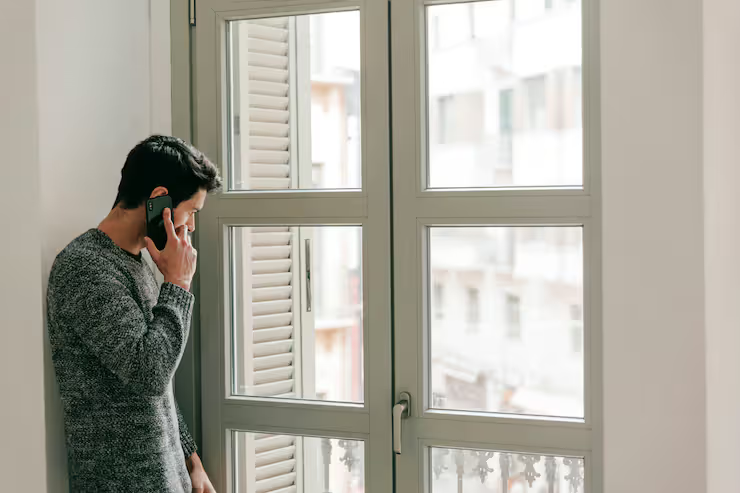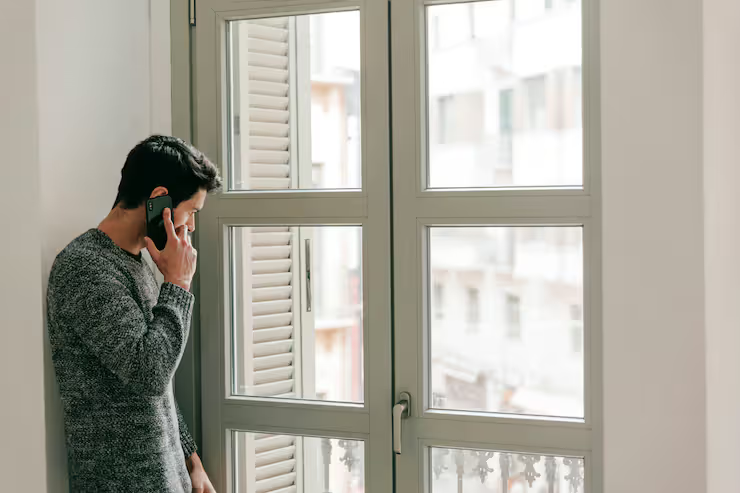Sound -proof windows are specially designed window systems that reduce the transfer of external noise in indoor rooms. They use techniques such as several glass layers, laminated pan, air gap and special seal to block or reduce sound waves.
This concept exists because modern living environments often highlight human traffic, construction, industrial activities or noise in the background from the busy neighborhood. Traditional single -palatic or standard windows cause a significant amount of sound to pass, causing disruptions affecting health and quality of life. Sound -proof windows were designed to provide more peaceful indoor environment by solving this problem directly.

Why soundproof windows mean something today and what problems they solve
Noise pollution has become a matter of serious concern in both urban and suburban areas. It affects millions of people every day and is associated with health problems such as stress, poor sleep and low concentration.
The meaning of soundproof windows can be understood through their benefits:
-
Health protection: Reduces stress, sleep disorders and cardiovascular risks associated with noise contact.
-
Better productivity: Quiet atmosphere from home or office.
-
Home relaxation: Provides a cool indoor setting, especially in an audience or noise area.
-
Noisy sensitive areas: where the silence is important for schools, hospitals and recording locations.
-
Stability link: Many modern soundproof windows also improve insulation and support indirect energy efficiency.
By solving noise infiltration, soundproof windows enhance direct quality of life, while at the same time corresponding to widespread goals for health and environmental stability.
How Laws and Guidelines affect soundproof windows
Government rules and programs strongly affect the adoption of soundproofed windows. Noise rules, construction codes and public health policies all play a role.
-
Noise control regulations: Many countries determine the maximum allowable decibel levels for residential areas, and encourages the use of sound insulation measures.
-
Building code: Standards often require acoustic insulation for highways, airports and structures near railways.
-
Public Health Initiative: Some governments treat noise as an environmental health problem and recommend protective design measures.
-
Sustainable building certification: Programs such as green building assessments include rapid noise insulation in the evaluation criteria.
-
Urban planning policy: In some cities, housing projects that are close to industrial or high traffic should include noise -reducing facilities.
These guidelines ensure that soundproof windows are not just alternative upgrading, but part of extensive strategies to promote lively, healthy and durable societies.
Tools and resources to understand the soundproofed window
For anyone who learns about soundproofed windows, many resources can help assess the needs and plan effectively.
-
Noise level meter -apps: Mobile apps measure environmental noise in decibels to detect how much reduction is required.
-
Sound transmission calculator: Online tools estimate how different glass types and thicknesses affect the noise level.
-
Building design template: Architectural guidelines often include window placements and noise reduction materials.
-
Education portal: Website and academic resources explain the science of sound and sound insulation.
-
Smart Monitoring System: Some digital platforms allow the internal noise levels and the real -time analysis of the efficiency of the installed windows.
These units provide clarity to beginners, while professionals scientifically help to evaluate sound insulation options.
Frequently asked questions
What makes a window sound insulation?
Sound -resistant window usually uses several glass panels, laminated intermediate layers and sealed frames that prevent sound vibrations.
Can soundproof windows block the noise completely?
No, no windows can completely eliminate the noise. However, they can reduce the noise from 70-90%, depending on design and installation.
Are thick windows always better for sound insulation?
Not always. While the thickness means something, laminated glass, air holes and special seals often play several roles in effectively blocking the sound.
Does the soundproof window also help with energy efficiency?
Yes, many soundproof designs also provide thermal insulation, which reduces energy loss and supports stability.
Do cities just need soundproof windows?
No, they are useful in the highways, industrial activity or even powerful suburban or rural areas affected by the neighborhood environment.
Conclusion
The soundproof window exceeds a luxurious function; They are important tools for protecting health, improving productivity and increasing the general comfort of modern life. When noise pollution becomes a global concern, these windows take a very real challenge that millions face.
Recent trends show integration into strong materials, smarter technologies and sustainable design standards. At the same time, the government's guidelines and health strengthen guidelines the importance of acoustic comfort in both residential and institutional surroundings.
By combining awareness of updating knowledge, practical equipment and regulations, individuals and communities can better understand how the soundproof window contributes to a calm, healthy living environment.

